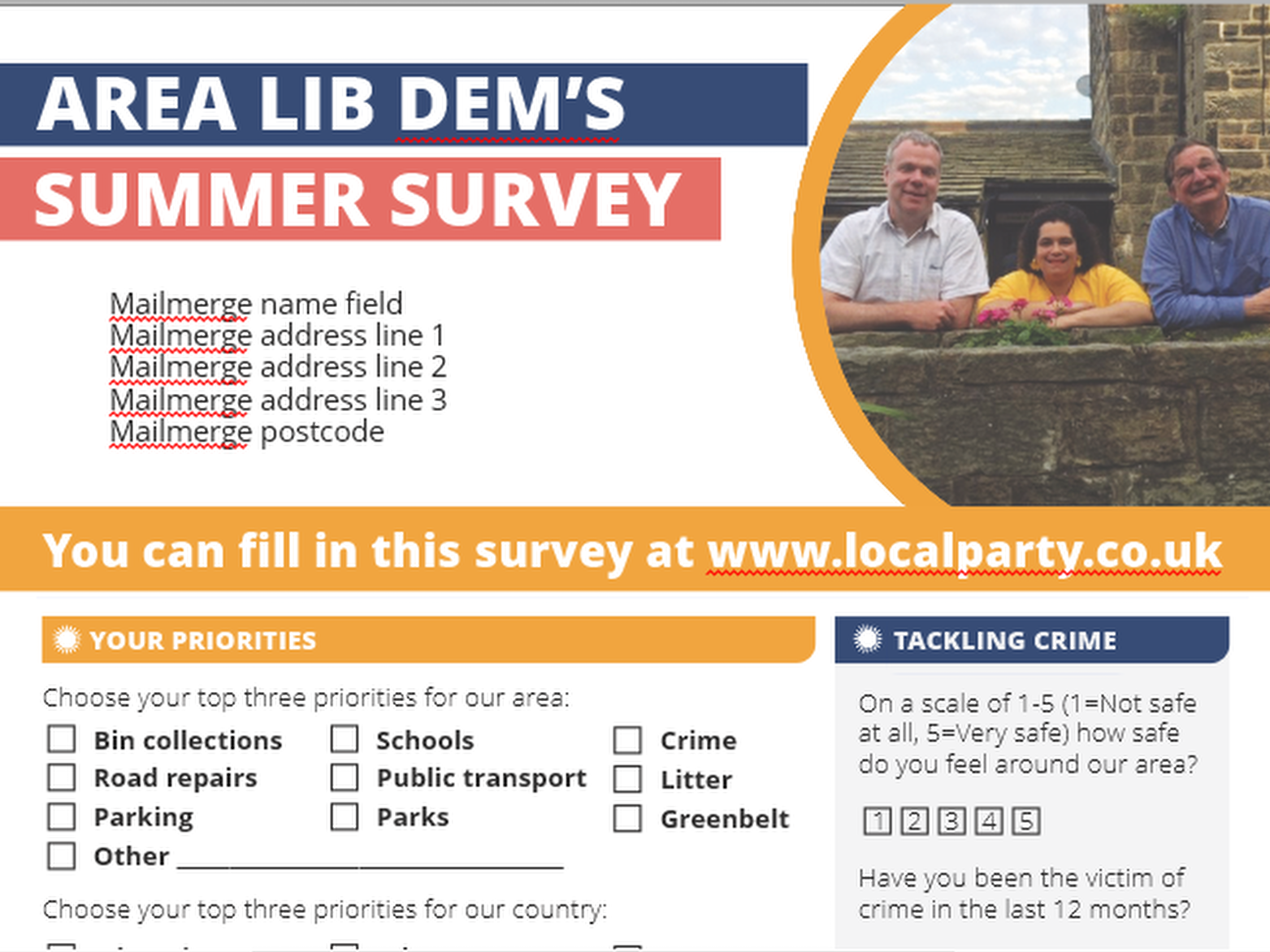
Recently, we have written about the effectiveness of surveys and urging our members to get out there on the doorstep to engage in conversations with the electorate. Surveying like this will of course raise lots of casework, and alert us to issues that are affecting people around different parts of our area.
Remember that if we ask people what their concerns are then fail to act on them, we are only going to further disenfranchise the electorate. We need to pride ourselves on being different, on doing the casework and actually picking up and campaigning on the issues raised. That’s why providing feedback on the actions you are taking as a result of your survey is essential.
Emailing out the Survey Results
Whenever anyone provides an email address with their survey it’s well worth quickly sending them an individual response about any specific issues they have raised. Also provide general feedback on wider issues in your regular email newsletters. Also make sure you let people know if they provide an email address that you will do this, it encourages people to provide one.
Direct Mail
On Connect we now record that someone has provided a survey response. That enables us to write a general letter to everyone who completed the survey about the common issues raised. This could either be delivered by hand with your next Focus or perhaps posted out if you had a smaller number of responses scattered across the ward. If you are posting out direct mail remember you can often get things printed and posted for you cheaper than putting a stamp on it. You can do this using ALDC Artworker.
The next direct mail option is to write more targeted responses to people who indicated a concern in a particular policy area. Our response letter about green issues is a good example of this. To do these simply create a list of everyone who has answered a question indicating that they are interested in this policy area. Use this list in Connect to write to them about the issues and what we are seeking to do. This micro-targeting based on policy issues is very effective, although of course it is more time consuming than writing a general response to everyone.
Street Letter or Street Focus
If there is an issue that only affects a certain area then you could write to everyone in that area, regardless of whether they have completed the survey or not. The chances are they have noticed this problem even if they haven’t completed the survey. Some people do this by means of a small A5 insert to their Focus leaflet (some ideas here) rather than an addressed letter. This kind of approach will see you winning the ward street by street, issue by issue.
General Focus Feedback
Using space on your next Focus leaflet is another way to feedback generally to everyone in the ward. It has the benefit that everyone will see you have been surveying and listening to residents but also acting on the issues that they have raised.
Remember the survey is the start of conversation, not the result of a conversation.
The lesson to take away is that the conversation we are having with the electorate starts with, rather than ends with, their survey response. Surveys provide us as campaigners with a means to understand the issues that concern our communities and to take action on the things that really matter to people.